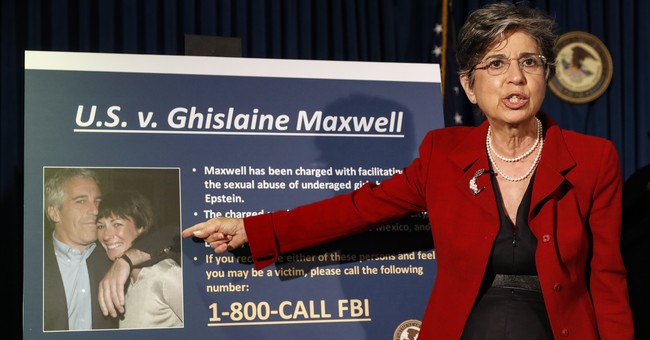
Ghislaine Maxwell, the ex-girlfriend and long-time companion of convicted pedophile and successful suicide practitioner Jeffrey Epstein, is set to appear for a “detention hearing” before a federal magistrate judge in New York City on Friday, July 10, 2020, according to correspondence sent by federal prosecutors from the Southern District of New York to the Judge on the case.
The lexicon for federal hearings such as this is different that what most refer to generically as a “bail” hearing, so my description here is going to stick to the language used in federal court on issues surrounding whether a defendant will be “detained” or “released on conditions” pending trial.
In many state systems, there exists what is known as a “bail schedule” — a predetermined list of bail amounts tied to specific crimes punishable under state law. The “bail” for a criminal defendant is generally the amount on the bail schedule that corresponds to the most serious offense charged. If a defendant can pay the amount set for bail in the bail schedule he gets out. If he cannot pay that amount he can ask for it to be reduced, or he can remain in custody.
The Bail Reform Act of 1984 did away with “bail” in federal criminal matters. Now there is a “particularized” determination made with respect to each individual charged with a federal crime on the question of whether that person shall remained detained in custody until the conclusion of their trial, or whether that person may be released on “conditions of supervised release” that address the two considerations a federal judge must take into account — 1) risk of flight, and 2) danger to the community the defendant would pose if released pending trial.
Every federal judicial district has a “Pretrial Services Office.” The Pretrial Services Officers serve two functions — 1) they make an initial recommendation to the Court on whether to detain or release a defendant, and 2) they supervise defendants who are released on “conditions of pretrial release”, and report to the Court any violations by a defendant released on such conditions. A violation of conditions of release, if serious enough, can cause the court to revoke that release, and have the defendant detained pending trial.
To make that initial recommendation, the PTS Officer interviews the defendant on issues such as living arrangements, family history, employment, etc., in order to make some determinations about stability of the defendant’s life if released. Often times a “Third Party Custodian” will be required — someone that Defendant must reside with who is bound by an agreement with the Court to report any violations of release conditions to the PTS officer.
The PTS Officer will also review all the documents filed with the Court by the prosecution, and will speak with the prosecutor and defense attorney about the nature of the case. That “strength” of the evidence in the case is considered one of the least significant factors to be considered because the defendant is presumed innocent, and it is expected that the defendant will challenge the government’s version of facts as set forth in court documents such as an indictment.
BUT, Congress has determined that when certain types of criminal behavior are found by a grand jury and charged in an indictment, the matter of the “detention hearing” begins with a presumption in favor of detention that can only be overcome by “clear and convincing” evidence that “conditions of pretrial” release can be fashioned which will establish that the defendant will not be a “danger to the community” if released pending trial. Sex offenses involving minors is one such area where Congress has determined that there is a presumption in favor of detention, and it is the defendant’s obligation to overcome that burden by “clear and convincing” evidence.
The process begins with the Government filing a “Motion to Detain”, which at one time was a document that required some individual language unique to each case, but in recent years it has become more of a form where the prosecutor simply checks the boxes corresponding to the relevant language in the Bail Reform Act that applies to the case. In this instance, the only necessary box that would be checked is the one corresponding to the fact that the charges in the indictment are covered by the “presumption in favor of detention” which is what the prosecutors filed prior to Maxwell’s short appearance in New Hampshire last Friday.
Over the next four days both sides will work with the PTS Officer to determine if there are “conditions, or a combination of conditions” that will reasonably assure the Court that Maxwell will not be a “flight risk”, and which can overcome the presumption that she will not be a danger to the community. The PTS officer will file a non-public report with the Court with a recommendation, and each side will get a copy. Those must be returned to the PTS officer after the hearing, and are not made part of the Court’s public file.
Contrary to what some have suggested online — mainly Twitter Law — the “threat” to Maxwell’s safety that might exist if she were to be released is not something the Court will take into consider.
I said last Friday on Twitter that I think the chances are at least 50-50 that she will be released on conditions of pretrial supervision.
The biggest problem for the prosecutors in making an effort to keep her detained on the basis that she is a danger to the community is that they have left her in the community for many years without previously arresting her, even though Epstein was prosecuted twice for conduct they allege she was involved in. Unless the prosecution can — and is willing — to show the Court that the information in the indictment about conduct between 1994 and 1997 was only just discovered, and prior to that they lacked probable cause to charge her, the Court will rightfully wonder why the government thinks she’s suddenly a danger to the community and she was not seen as such for so many years when they left her uncharged.
In addition, I doubt the government will be able to point to any allegations of activity by Maxwell going back 5, 6, 7 years or more. It is hard to predict what they are holding back in terms of the last solid evidence they have about her efforts to assist Epstein in satisfying his prurient interests in young girls. The farther into the past the government must go for bona fide examples of Maxwell assisting Epstein — or others — the less compelling the case will be that she would be a current “danger to the community” if released.
Further, the descriptions of her conduct in the indictment generally fit within a portrayal that will be made by her attorneys that anything she was alleged to have done was not for her personal sexual satisfaction, but was instead in service of helping Epstein. One of the accounts from a victim in the indictment makes this point for her. The victim told law enforcement that Maxwell’s sexual conduct was more about “Here’s what they are going to want and here’s what you need to do” than they were about Maxwell herself receiving sexual pleasure from the conduct. This is not uniform across all three listed victims, but it is certainly in there and her attorneys will try to exploit that in making the point that in the absence of Epstein’s malign influence over her — or the influence of others — she was never a threat to the girls on her own. Since Epstein is now dead, the danger that she might have once constituted as a result of her involvement with him is no more.
I think the “risk of flight” will be less of a concern. The argument her attorneys will make is that she has known for a long time that she could be prosecuted, and her attorneys have been engaged in discussions with prosecutors for a long time about her status. She has traveled during that time period, but her travels were no different than they had been her entire life. And she came back to the US and bought property here knowing she still faced the risk of indictment. If she truly intended to flee she would have made a life for herself in some other location in the same manner as someone like Roman Polanski.
Her passports would be surrendered, and she could be subject to home detention and electronic monitoring to make sure she doesn’t attempt to leave New York without the permission of the Court. She could also post a property bond secured by the million dollar estate she recently purchased in New Hampshire, or a surety bond in some other substantial amount which she would forfeit if she violated any conditions of her release.
These are all meaningful and substantial arguments her attorneys could/will make on her behalf to gain her release pending trial. Maybe the biggest hurdle she faces, however, is that the Magistrate Judge does not have to offer much of an explanation for why he/she might conclude that even with all those factors on her side, he/she still finds that “no condition or combination of conditions” are sufficient to overcome by clear and convincing evidence the presumption that she be detained pending trial.
It can be a bit of frustrating process when a lot of hard work goes into fashioning an argument, and marshaling assets to allow for a release on conditions only to have the Magistrate turn you down with just a phrase or two of including the “magic words” that make it difficult to appeal the decision.
So, while I think there are strong arguments that her attorneys can make to secure her release, the issue really comes down to not much more than a decision by a Magistrate to whether it is better, on balance, to have her sit in a NYC apartment, or sit in a sell at a federal detention center in Manhattan.
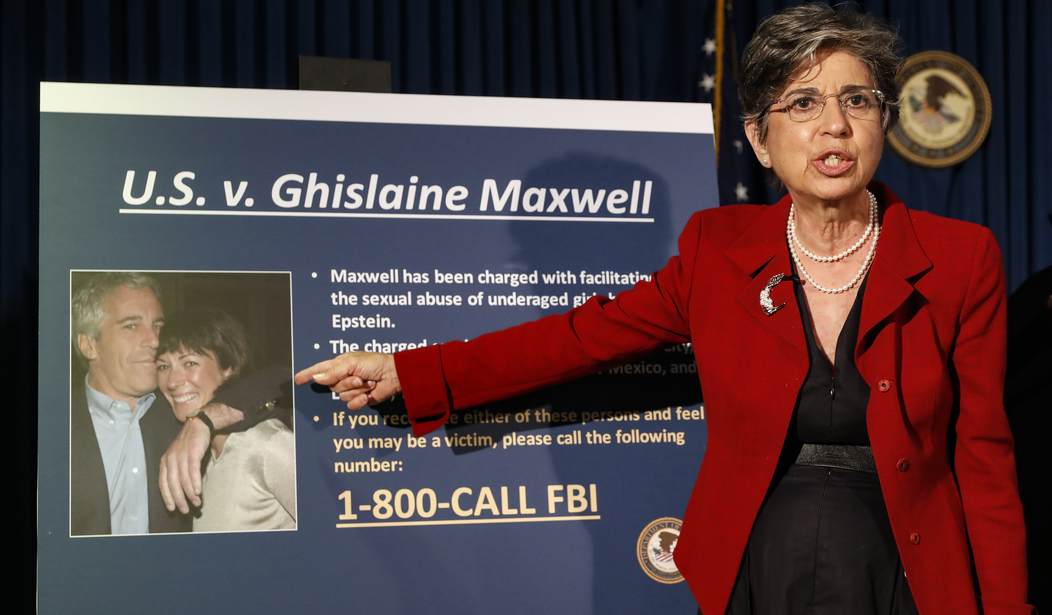









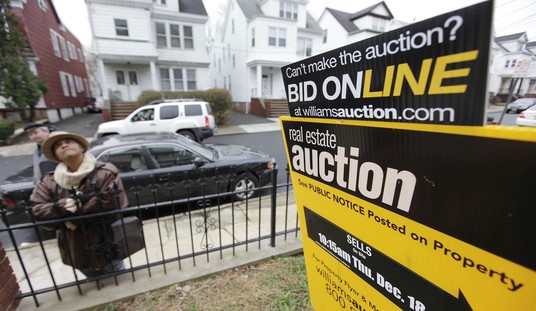
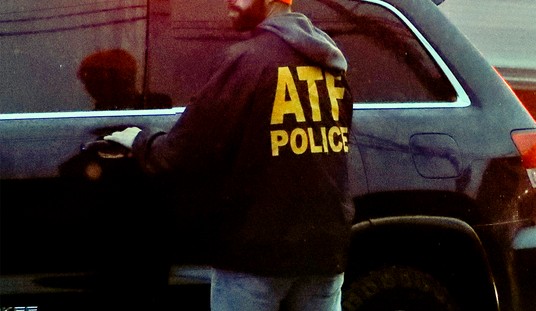
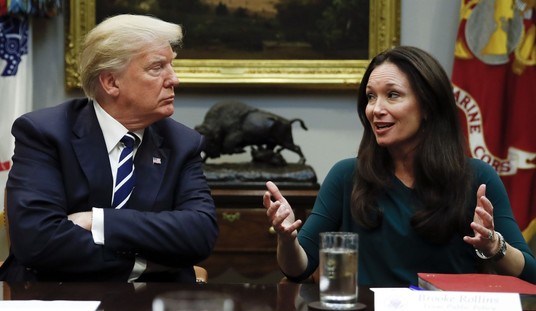

Join the conversation as a VIP Member